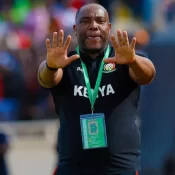
Rappers AY and Mwana FA settled a seven-year copyright dispute for Sh98 million
Trendy Rapper Hamisi Mwijuma, better known by his stage name Mwana FA, is from Tanzania. He is the assistant minister for culture, arts, and sports. He has admitted obtaining Sh98 million in a copyright infringement lawsuit against telecom behemoth MIC Tanzania Limited (Tigo).
At first, a District Magistrate Court’s order for special damages had been revoked by the High Court.
In 2011, Tigo was sued by Mwana FA and his longtime friend, rapper Ambwene Yesaya (AY), for using their two hit songs, “Dakika Moja” and “Usije Mjini,” without permission. They sought Tsh4.3 billion (Sh200 million at the time) in compensation.
The two renowned rappers were given a one million US dollar (Sh98 million at the time) special damages award by the District Magistrate Court in April 2016. The court was convinced that the mobile service provider had used the two songs to make money without the artists’ permission or agreement.
After extending the lawsuit for seven years, Tigo would then repeatedly petition for a stay of execution of the judgment at the High Court. Eventually, however, Tigo would lose and would have to pay.
Speaking at the “Sanaa na Pesa” artist workshop in Dar es Salaam, Mwana FA stated that following a protracted legal battle, they had finally been compensated.
“We filed a significant lawsuit here in the nation against a major cellphone company. According to Mwana FA, the matter took seven years to resolve from the time we filed it in 2011 until we received a decision in 2018.
They were eventually paid for their perseverance, which Mwana FA still does not consider an accomplishment.
“We received one million US dollars (Sh98 million) in compensation in 2018,” the statement reads. Receiving a million US dollars in compensation is a significant accomplishment for many individuals, but not for me. The greatest accomplishment, in my opinion, was creating a precedent that states that no one should use an artist’s creation without that artist’s consent or understanding. that you have the right to go to court and claim what is properly yours if there is no commercial arrangement in place for the use of your art and someone gains from it. Using best practices is what I consider to be an accomplishment in our instance, Mwana FA said.
The musician-turned-politician described the seven-year court case and the legal strategies used by the respondent to try to avoid paying them what was owed to them.
“We had numerous back-and-forth orders in the court, so it wasn’t an easy triumph, but AY, I, and our attorney, Albert Msando, never gave up. Our then-attorney recommended us to file our case for Tsh4 billion in compensation at the High Court rather than the District Magistrate Court because the latter has the authority to grant claims up to Tsh200 million, he says.
The respondent, however, opposed to the application at the High Court once they filed the case there.
The District Magistrate Court was subsequently granted exclusive jurisdiction over the case by the High Court, enabling the smaller court to grant claims up to the maximum sum designated by the High Court. The respondent contested the decision, claiming the District Court lacked authority to grant us the amount, after the case was decided by the District Court and a judgment was filed in our favor, granting us one million US dollars under the High Court’s exclusive jurisdiction direction. The Tanzanian Copyright Act was revised in 2019, expanding the court’s ability to award compensation over the Tsh200 million ceiling, the speaker continued.
After much back and forth, the High Court, which had previously overturned the District Court’s ruling, ordered Tigo to give the artist the money.
All Categories
Recent Posts
Man United could lose Yoro, which would be a huge blow
McCarthy: I am able to change things in Kenya
Tags
+13162306000
zoneyetu@yahoo.com



